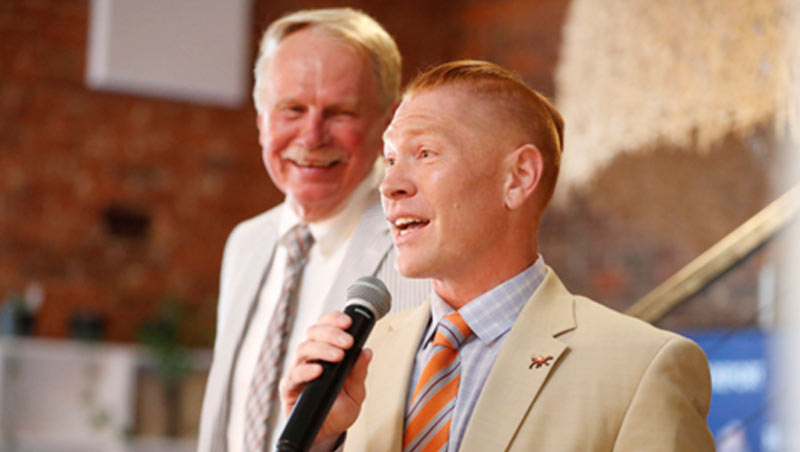
Faculty Spotlight: Prof. Shawn Fields

We are delighted to welcome Associate Professor Shawn Fields to California Western, where this year he will be teaching Civil Procedure, as well as a seminar based on his ongoing scholarship around criminal procedure, police practices, and police reform. A rigorous legal thinker and a zealous champion of justice, Professor Fields will certainly be a boon to our community.
Hailing from a town of 300 in the Blue Ridge Mountains, a first-generation college attendee, Professor Fields says, “I had no business being in college, much less going to law school and becoming a professor.” Belying his humility, however, is Professor Fields’s resume, which has taken him from San Francisco, where he provided criminal defense for the homeless population, to Tanzania, where he represented refugees and asylum seekers before the US State Department; from an initial stint in San Diego, serving as a criminal appellate specialist, to North Carolina, where he has been a professor of Immigration Law, Criminal Procedure, and Trial Advocacy for the last five years.
Professor Fields’s early career experiences “uncovered the manifest fundamental injustice of our criminal legal system against vulnerable marginalized people, as well as the regular systemic procedural violations of people's constitutional rights.” Encountering this injustice first-hand served and continues to serve as his motivation to find ways to enact change, both as an academic advocate and as a legal consultant. Unsurprisingly, Professor Fields’s works have been cited by the Supreme Courts of three states, helping to dispel myths around survivors of rape and advocating for reconsideration of 4th amendment rights in a deregulated “concealed carry world.” His more recent works— “The Fourth Amendment Without Police;” his book Neighborhood Watch; and the book he is at work on, Rights Without Cops— all contend with the realistic challenges and possibilities for defunding police and the need to consider how constitutional rights can be protected in such circumstances.
As part of his role at Campbell University, Professor Fields has served on the ABA’s Legal Education Police Practices Consortium, advising law students as they collaborate with local police stations, reviewing their procedural policies and offering data-based suggestions for reform. Professor Fields is excited by the possibility of having California Western join the Consortium, so we can bring this vital work to San Diego.
Professor Fields is also keen to enter the classroom, where he says, “I view myself as a servant, not just to my students, but to their future clients… My students will be representing people who need justice, coming to them in a very vulnerable state, maybe even the worst day of their lives. And they're looking for somebody who can offer ethical and zealous representation.” As such, Professor Fields is dedicated to making sure his students know the “black letter legal principles” needed to to handle any new case; that they are “effective advocates,” willing and able to defend their positions; and that they are well versed in “larger jurisprudential philosophy, socio-legal history, and critical legal perspectives, like critical race theory or critical queer theory.”
Ultimately, Professor Fields says, “the law is an imperfect, often blunt instrument that's designed to promote fair treatment, dignity, equality, and justice in civil society… We have both the opportunity and the obligation to identify gaps in the law and to advocate for change, so that the law can more perfectly reflect what a just society is.” We are grateful for the change Professor Fields will bring to California Western and look forward to working with him to create a more just society.
